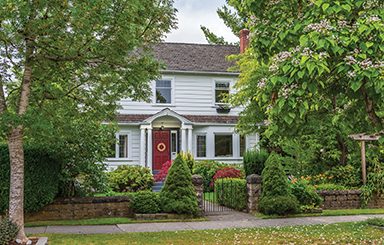Nebraska’s Unicameral
Nebraska lays claim to some unique characteristics – it is home to the Cornhuskers, has the nation’s largest underground aquifer, and is the only state with a unicameral legislature.
But, the state legislature wasn’t always a unicameral. The change was driven in part by the U.S. Senator George Norris, a Progressive Republican who believed a one-house legislature would be more transparent and efficient. He and others thought members would be more accountable to voters for their actions, rather than act out of loyalty to their party. Another reason for change was the rising cost of government in the era of the Great Depression.
After several failed attempts, Nebraskans voted in 1934 to amend the state constitution and establish the nation’s first unicameral legislature. The unicameral met for the first time in 1937.
Before becoming a unicameral, the Nebraska Legislature was a partisan body. The change to nonpartisanship was included in the successful 1934 unicameral amendment. All the members call themselves State Senators. They are elected without party affiliation and can override a veto by a majority of 60 percent instead of the usual two-thirds number in all other states. Instead of being elected by partisan leaders, committee members are elected by their colleagues.
Previously, the legislature met every two years. But it was a national trend in the 1970s for lawmakers to hold annual sessions. When Nebraska’s constitution was changed to reflect that trend, there was a trade off. The legislative sessions are now 150 days over a two-year period – a 90-day session one year and a 60-day session the next.
Charlyne Berens, associate dean and professor of journalism at UNL, is the author of One House, a book that examines Senator George Norris and his quest to change the legislature. Norris also wanted to remain true to the populist, progressive vision of its founders and the people of Nebraska. He thought a unicameral would be more efficient.
“George Norris thought partisanship got in the way of the state’s business,” Berens said. “His intent was to have an open and accountable lawmaking body.
“It has lived up to that intent,” she said.
Patrick O’Donnell, a long-time clerk of the legislature, said the unicameral has worked well in Nebraska despite changes in the way it does business. Society is more complex and tougher, O’Donnell says. Technology has affected the legislature’s work and the methods they use to communicate and share information.
“Because of the shorter sessions, party influences are much more visible,” O’Donnell said. “Until 1971, the biennial legislature meant that legislators spent more time together and learned what each other thought. Now they spend less time together and don’t get to know their colleagues as well.”
The non-partisan nature has an influence the workings of the legislature, O’Donnell said. Members serve on two committees, sometimes more. “The State Senators develop expertise by sitting on a committee and they develop relationships with colleagues.”
Berens said parties have gotten more involved in elections. But once they are elected, there isn’t a majority and minority.
“If you are new, it’s easier for parties to have influence, but it’s not official,” she said. “In Nebraska, there is a shift in legislators because of other factors, such as the change in rural and urban areas.”
Senator Kathy Campbell said Nebraskans take for granted that it’s easier to interact with the senators than in other state legislatures. And working with constituents is much easier with 49 legislators. Nebraska has the smallest in the nation, with the next smallest being Alaska with 60 members.
“George Norris wanted it to truly be a people’s legislature,” Campbell said. “Other legislatures are bound by partisan issues. But in Nebraska, coalitions are formed around issues at hand. And having a one-house legislature expedites the hearings and debates,” she added.
Watch what happens live Nebraska was one of the first states to broadcast the legislative proceedings on television, O’Donnell said.
Nebraska Educational Telecommunications (NET) provides live coverage of legislative floor activity and public committee hearings held at the Capitol.
All bills have public hearings and citizens can just show up and testify.
“The committees value the public’s opinions,” Berens said. “Senators learn from their constituents, not just from each other.”
Campbell said, “You can watch NETV from gavel to gavel. There are no ‘behind closed door’ caucuses.” With short sessions and term limits, it’s important that the committees are efficient. There is a cadre of people who serve and have longevity to aid the senators.
“It’s one of the hallmarks of the unicameral,” she said.
When asked how the unicameral stacks up, O’Donnell said, “We’re as good as other legislatures,” he said.
O’Donnell has visited and observed many other states over the years: “All legislatures make mistakes and find themselves calling special sessions.”
He said the unicameral’s open policies have served the state well.
Berens agreed. “Nebraskans want to promote a strong sense that this is a public house, she said. “There is a sense of tradition and openness.”
By Judy Shutts




Recent Comments